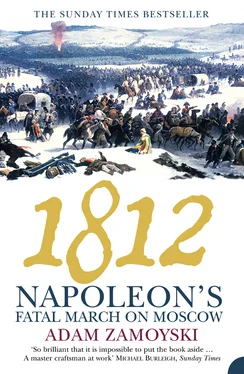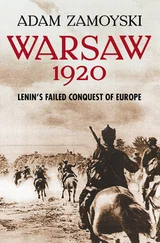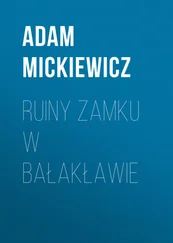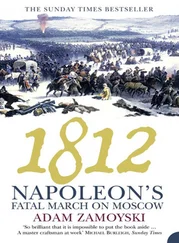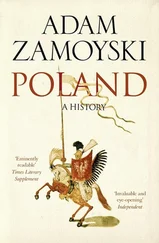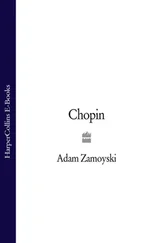1812
Napoleon’s Fatal March on Moscow
ADAM ZAMOYSKI

Harper Perennial
An imprint of HarperCollins Publishers 1 London Bridge Street London SE1 9GF www.harpercollins.co.uk
This edition published by Harper Perennial 2005
FIRST EDITION
First published by HarperCollins Publishers 2004
Copyright © Adam Zamoyski 2004
Adam Zamoyski asserts the moral right to be identified as the author of this work
A catalogue record for this book is available from the British Library
All rights reserved under International and Pan-American Copyright Conventions. By payment of the required fees, you have been granted the nonexclusive, nontransferable right to access and read the text of this ebook on screen. No part of this text may be reproduced, transmitted, downloaded, decompiled, reverse engineered, or stored in or introduced into any information storage and retrieval system, in any form or by any means, whether electronic or mechanical, now known or hereinafter invented, without the express written permission of HarperCollins e-books.
This book is sold subject to the condition that it shall not, by way of trade or otherwise, be lent, re-sold, hired out or otherwise circulated without the publisher’s prior consent in any form of binding or cover other than that in which it is published and without a similar condition including this condition being imposed on the subsequent purchaser.
Some images were unavailable for the electronic edition.
HarperCollinsPublishers has made every reasonable effort to ensure that any picture content and written content in this ebook has been included or removed in accordance with the contractual and technological constraints in operation at the time of publication.
Ebook Edition © JULY 2012 ISBN 9780007381067
Version: 2019-10-14
Europe in 1811
Russia’s expansion in the west, 1772–1812
The Russian Armies of the West
French and Russian dispositions in June 1812
The French advance
The advance to Vitebsk
The Rudnia offensive and Napoleon’s Smolensk manoeuvre
The battle for Smolensk
Lubino – Valutina Gora
The Russian positions at Borodino
Borodino. The morning attacks
Borodino. The final assault
Kutuzov’s retreat from Moscow
Maloyaroslavets
The retreat
The view from Smolensk
Krasny, 15–16 November
Krasny, 16 November
Krasny, 17–19 November
The closing trap, 21 November
The Berezina manoeuvre
The Berezina crossing
The strategic situation at the beginning of December
Statistical chart showing the outward march and retreat of all the forces which crossed the Niemen
Cover
Title Page
Copyright
Maps
Select Glossary of Place-Names in the Former Polish Lands of the Russian Empire
Introductory Note
1 Caesar
2 Alexander
3 The Soul of Europe
4 The Drift to War
5 La Grande Armée
6 Confrontation
7 The Rubicon
8 Vilna
9 Courteous War
10 The Heart of Russia
11 Total War
12 Kutuzov
13 The Battle for Moscow
14 Hollow Triumph
15 Stalemate
16 The Distractions of Moscow
17 The March to Nowhere
18 Retreat
19 The Mirage of Smolensk
20 The End of the Army of Moscow
21 The Berezina
22 Empire of Death
23 The End of the Road
24 His Majesty’s Health
25 The Legend
Plates
Notes
Sources
Index
About the Author
Reviews
Praise
By the Same Author
About the Publisher
Select Glossary of Place-Names in the Former Polish Lands of the Russian Empire
Babinovitse: Babinowicze (Polish), present-day Babinavicy (Belarus)
Berezina: Berezyna (Polish), present-day Bjarezina (Belarus)
Beshenkoviche: Bieszenkowicze (Polish), present-day
Bešankovicy (Belarus)
Bobr: Bóbr (Polish), present-day Bobr (Belarus)
Borisov: Borysów (Polish), present-day Barysau (Belarus)
Brest: Brzesc (Polish), present-day Brést (Belarus)
Dnieper: Dniepr (Polish), present-day Dnjapro (Belarus)
Drissa: Dryssa (Polish), present-day Verhnjadzvinsk (Belarus)
Dubrovna: Dubrowna (Polish), present-day Dubrovno (Belarus)
Dunaburg: Dzwinsk (Polish), present-day Daugavpils (Latvia)
Glubokoie: Głebokie (Polish), present-day Glybokae (Belarus)
Grodno: Grodno (Polish), Grodna (Belarus)
Kobryn: Kobryn (Polish), present-day Kobryn (Belarus)
Kovno: Kowno (Polish), present-day Kaunas (Lithuania)
Ladi: Lady (Polish), present-day Liadi (Belarus)
Loshnitsa: Łosznica (Polish), present-day Lošnica (Belarus)
Miedniki: Miedniki (Polish), present-day Medininkai (Lithuania)
Minsk: Minsk (Polish), present-day Minsk (Belarus)
Mogilev: Mohylów (Polish), present-day Magilev (Belarus)
Molodechno: Mołodeczno (Polish), present-day Maladzecna (Belarus)
Mstislav: Mscislaw (Polish), present-day Mscislav (Belarus)
Niemen (river): Niemen (Polish), present-day Nemunas (Lithuania)
Nieshviezh: Nieswiez (Polish), present-day Njasviž (Belarus)
Orsha: Orsza (Polish), present-day Orša (Belarus)
Oshmiana: Oszmiana (Polish), present-day Ašmjany (Belarus)
Ostrovno: Ostrowno (Polish), present-day Astrovna (Belarus)
Pleshchenitse: Pleszczenice (Polish), present-day Plescanicy (Belarus)
Polotsk: Polock (Polish), present-day Polack (Belarus)
Ponary: Ponary (Polish), Panarai (Lithuania)
Shvienchiany: Swieciany (Polish), present-day Svencionys (Lithuania)
Smorgonie: Smorgonie (Polish), present-day Smarhon’ (Belarus)
Studzienka: Studzienka (Polish), present-day Studenka (Belarus)
Tolochin: Toloczyn (Polish), present-day Talacyn (Belarus)
Troki: Troki (Polish), Trakai (Lithuania)
Vesselovo: Weselowo (Polish), Veselovo (Belarus)
Vilia: Wilja (Polish), present-day Neris (Lithuania)
Vilna: Wilno (Polish), present-day Vilnius (Lithuania)
Vitebsk: Witebsk (Polish), present-day Vicebsk (Belarus)
Volkovisk: Wołkowyski (Polish), present-day Vavkavysk (Belarus)
Zakrent: Zakret (Polish)
Ziembin: Ziembin (Polish), present-day Zembin (Belarus)
Napoleon’s invasion of Russia in 1812 was one of the most dramatic episodes in European history, an event of epic proportions, etched deeply in the popular imagination. I only had to mention the subject of this book for people to come to life, stirred by recollections of Tolstoy’s War and Peace , by the scale of the tragedy, by some anecdote that had lodged itself in their memory, or just a mental image of snowbound Napoleonic tragedy. But the flash of recognition was almost invariably followed by an admission of total ignorance of what had actually happened and why. The reasons for this curious discrepancy are fascinating in themselves.
No other campaign in history has been subjected to such overtly political uses. From the very beginning, studies of the subject have been driven by a compulsion to interpret and justify that admits of no objectivity, while their sheer volume – over five thousand books and twice as many articles published in Russia alone in the hundred years after 1812 – has helped only to cloud the issue. 1
This was to be expected, considering what was involved. There were great reputations at stake: those of Napoleon, of Tsar Alexander, of Field Marshal Kutuzov, to name only the obvious ones. There was also a need to make sense of the whole business, for this war, unprecedented in the history of Europe in both scale and horror, was not easy to assess in military terms. The action was often confused. Both sides claimed victory in every engagement. And if the French had lost the campaign, the Russians could hardly be said to have won it. At the same time, people on both sides had behaved with a savagery that neither nation wished to contemplate.
Читать дальше
